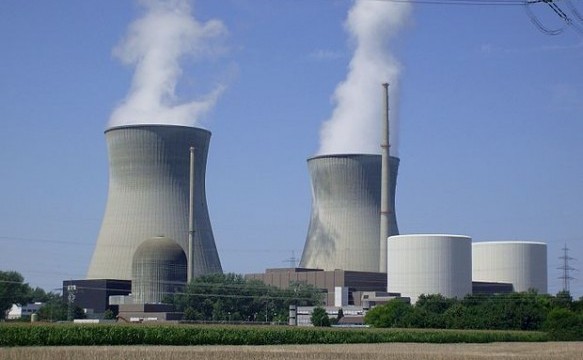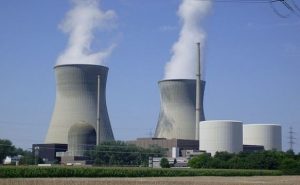
 Right from Faggae local government in Kano state to Kaduna North, Zaria local government in Kaduna, to many local governments in Lagos state and other suburbs in Southern Nigeria, the continuous cry about power outage has been deafening as the electricity situation in the country continue to defy solutions. From Calabar to Katsina, Kano to Akure, Delta to Aba, Lagos to Sokoto and Abeokua to Owerri, the story is the same: No power while consumers pay for darkness. The outcry cuts across citizens of various class and occupation from the college Teacher to the Custom Officer, to market women, businessmen and residents staying in different part of the country but experiencing the same problem of long hours of power outage.
Right from Faggae local government in Kano state to Kaduna North, Zaria local government in Kaduna, to many local governments in Lagos state and other suburbs in Southern Nigeria, the continuous cry about power outage has been deafening as the electricity situation in the country continue to defy solutions. From Calabar to Katsina, Kano to Akure, Delta to Aba, Lagos to Sokoto and Abeokua to Owerri, the story is the same: No power while consumers pay for darkness. The outcry cuts across citizens of various class and occupation from the college Teacher to the Custom Officer, to market women, businessmen and residents staying in different part of the country but experiencing the same problem of long hours of power outage.
Minister of Power, Works and Housing, Mr. Babatunde Fashola, recently warned power firms in the country to deliver better services to electricity consumers or exit the industry. The Minister’s hard talk wasn’t misplaced; rather it was borne out of the frustration of millions of Nigerians across the country over the worsening power situation since the past three years that the private sector took over the generation and distribution of electricity in the country.
Despite the continuous power debacle, Nigeria has reiterated its desire to sell power assets to private investors apparently in a bid to improve electricity in the country. Minister of Works, Power and Housing, Babatunde Fashola, assured that three years was enough to judge the capability of the new owners while calling on electricity consumers to cooperate with the power investors to improve on their services instead of calling on government to take over the privatised companies. While calling for cooperation from the power consuming public in the face of current epileptic power supply, Fashola, explained that as far as the economy was experiencing instability, so will electricity tariff continue to fluctuate.
He said: “That tariff review was continuing in the power sector. It is either review upward or downward depending on the market trend. We are not immune from the decisions we make on electricity tariff because ourselves, family members or relations will be affected.”
Similarly, while making his Opening Address as Guest Speaker at the January edition of the Nextier Power Dialogue held at the Thought Pyramid Art Centre, said the Ministry of Power, Works and Housing along with other agencies of the Federal Government, like Ministry of Finance and the World Bank, has put together a policy framework that would help establish stronger and better institutional framework needed to tackle the challenges in the Power Sector. According to the Minister, such policies would help realise a deepening of metering, sanctions for energy theft and better contract performance from Operators in the Power Sector as well as help achieve the financial strengthening of the Nigerian Bulk Energy Trading PLC (NBET).
This is coming at the back of the latest drop in electricity generation to 3,233megawatts due to gas constraints. The grid which had power generation of about 4,160mw on January 1, 2017 dropped to 3,432mw and further declined to 3,098mw, causing a total loss of 1,062mw. This may also not be unconnected to the reported shut down of of seven power plants across the country four of which belongs to the National Integrated Power Projects are shut, while others have remained non-functional for some time. The report indicated that a partial system collapse occurred In January this year while other plants are either mismanaged or lack adequate maintenance.
This may not be new as has become a frequent recurrence, a development that has turned almost every Nigerian to a power operator of some sort. Practically every home or corporate organisation depends on generators for their electricity and energy needs, thus leaving the grid output to an alternative rather than a major supplier.
As gas supply continue to be an issue, the Nigeria National Petroleum Corporation (NNPC), said a total of 528 million metric standard cubic feet/day (mmscfd) gas was delivered to the thermal power plants in November 2016, to generate an average power of about 2,344 MW compared with December 2015 to November 2016 average gas supply of 538 mmscfd and power generation of 2,409 MW.
Just like previous administrations and its ministers, Minister of Power, Works and Housing, Babatunde Fashola has reiterated that the ongoing projects would address the issue of unstable electricity supply. He expressed regrets that notwithstanding a paltry budget of N5 billion in 2016, the ministry spent so much on offsetting outstanding debts to contractors, meaning that ongoing work on 100 transmission projects was halted. Fashola listed the ongoing projects to include the 215 mw Kaduna Power; 40mw Kashimbila Power (hydro); 40mw Gurara 1 Power (hydro); 29 mw Dadin Kowa Power (hydro); 10 mw Katsina Power (wind), 1,125 mw (14 solar plants); and the 240mw emergency power project for Afam (gas).
Nigerians have endured several promises by various administrations, the latest of which was to increase power generation to 12,000 megawatts in 2016, but the government barely achieved between 3,200 and 4,000 megawatts.
The Nigerian power sector has been a thorn in the flesh of successive governments in Nigeria after the era of Electricity Company of Nigeria (ECN). Efforts by successive governments to stabilise power supply in the country have been marred by challenges. After the ECN, successive governments had changed the company’s name to National Electric Power Authority (NEPA) and to Power Holding Company of Nigeria (PHCN) in the bid to reverse the misfortunes of the sector.
The privatisation of the sector was aimed at holistically addressing power supply problems in Nigeria, but this has not been achieved, no thanks to pipeline vandalism in the Niger Delta and other problems. Industry experts decried the poor power situation in Nigeria and blamed this on lack of adequate investment by operators in the country’s privatised electricity plants. The President, Nigerian Society of Engineers, Mr. Otis Anyaeji, said that engineers were not comfortable with the services being provided by the power generation and distribution companies.
According to him, engineers have observed that the poor power generation and supply across the country is due to the inability of the electricity firms to invest significantly in the companies they bought since November 2013.
Three years after the privatisation, Nigerians have not seen the promised benefits of the private sector take-over of the distribution and generation of power. Amid the appalling power supply, many consumers are disturbed by inadequate meters and the crazy billing system popularly known as estimated bills.
According to Amos Simon, chairman of Palmgrove Housing Estate, Lagos, the objective of privatising the power sector has been subverted by the new owners. He believed that the new power sector operators are only interested in making money through crazy bills than metering electricity consumers.
It seems the privatization of power facilities may not be the ultimate way out as another energy expert, Mr Paul Uchenna, believed the new investors never anticipated the quantum of problems on the ground. Thus Nigerians should not expect quick fixes as this challenging period have been described as teething problems which every new comer to an industry process or programme typically experienced.
Investigations also reveal that government indebtedness is one of the issues the DISCOs are grappling with. For instance, federal government ministries, departments, and agencies (MDAs) owe the DISCOs up to N100 billion.
Another problem facing the private electricity companies is the imbalance caused by the tariff system, which the government set for DISCOs in February 2016. The NERC fixed the maximum charges at N28.05/KW, whereas the price point at which the DISCOs claim they can operate effectively is about N54/KW. These and other avalanche of problems like corruption and financial mismanagement has become the bane of development of the power sector in Nigeria.
In a recent development and somewhat cheering news, the management of Eko Electricity Distribution Company (EKEDC) has said the company planned to install 200,000 pre-paid meters for consumers in 2017 to end estimated billing. Mr Oladele Amoda, the Chief Executive Officer (CEO) of the company, made the disclosure in an interview with the News Agency of Nigeria (NAN) in Lagos. Amoda said the company had signed an agreement with Mojek International, an indigenous smart meter manufacturing company, for the supply of over 100,000 meters in December.
